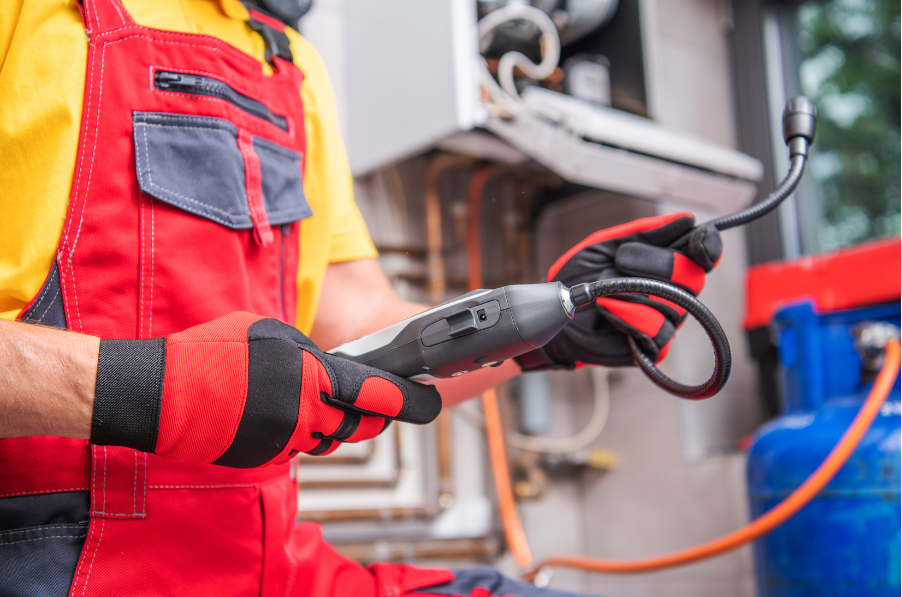Your AC Drain Line: What You Need to Know

With temperatures soaring in our area, chances are you’re using your air conditioner on a daily, if not hourly basis. That being said, it’s vital that you check to ensure yours is functioning as efficiently and effectively as it’s able to.
If your air conditioner has a clogged drain line, however, then it can’t possibly function as well as it should be able to. We understand this may not be a super interesting topic, but it’s an important one nonetheless. You should know what a condensate drain is, as well as what it does. And if you do run into a problem with this cooling system component, be sure to call in a professional plumber in Bellaire, TX.
What Is the Condensate Drain Line?
This may be your first question. If you have a forced-air cooling system, then it relies on the adjustment of both the temperature and humidity of the outdoor air before cool air gets sent into your home. This process, as you might imagine, creates condensation. That condensation has to go somewhere.
This is where the condensate drain, or AC drain line, comes in. The drain is attached to a line which leads outside of your home. The drain line is often created from PVC pipe, and just like any other pipe can become clogged or blocked. As a result, your AC (or even your furnace, in the winter time) won’t be able to properly drain the excess condensation.
What Causes Drain Line Problems?
There are two primary reasons a blocked condensate drain line can occur. One very possible cause is algal growth. In humid areas such as ours—that is, areas with high moisture and high heat—this problem is relatively common. This is not a rare issue.
Another common reason for a blocked condensate drain line is the accumulation of dirt or other debris. This can happen if anything enters the AC system’s outdoor unit—dirt, dust, lawn clippings, mulch, and leaves. Therefore, the moisture won’t have anywhere to drain out.
What Is the Worst That Can Happen?
This probably still seems like a small problem, and relative to everything that can go wrong with an air conditioner, it is. However, it’s not just your air conditioner you should be concerned with. It’s your property as a whole. Think about this—all the water formed by condensation needs somewhere to go. If it can’t exit via the drain line, it can and will back up into your home.
This leaves you with potentially expensive water damage remediation, and also creates a breeding ground for mold and mildew. Plus, if water drips or splashes onto any electrical components in your home, fire is another very real hazard.
“But How Do I Know If I Have a Problem?”
Naturally, you can’t call about a condensate drain line problem if you don’t know you have a problem to being with, The most apparent sign that something is amiss is the presence of water around your AC system’s indoor cabinet. This could be refrigerant, which means you have a leak. But regardless of the cause or outcome, liquid coming from your cooling system should never be ignored.
For expert plumbing services you can depend on, contact Doug Turn Plumbing CO. today.
The post Your AC Drain Line: What You Need to Know appeared first on Doug Turner Plumbing CO..
CONTACT INFORMATION
Physical: 9945 Mula Rd. Stafford, TX 77477
Mailing Address: PO Box 1177 Sugar Land, TX 77487
Phone: (281) 201-6065

